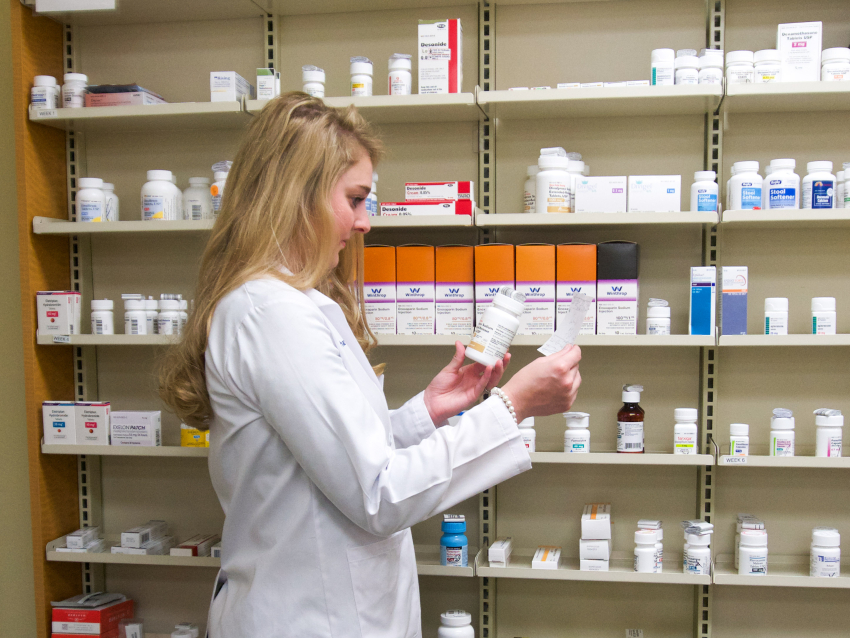
Pharmacists’ Authority to Deliver Protocol-Driven Care Set to Impact Patient and Public Health Across Kentucky
The culmination of almost two years of collaborative effort was achieved this past December when the Health & Welfare & Family Services Interim Joint Committee of the Kentucky Legislature approved regulation 201 KAR 2:380, board authorized protocols.
These efforts were spearheaded by the Advancing Pharmacy Practice in Kentucky Coalition (APPKC), an advocacy group comprised of the key pharmacy stakeholder organizations in Kentucky, including the Kentucky Pharmacists Association, the Kentucky Society of Health System Pharmacists, the Kentucky Board of Pharmacy, the American Pharmacy Services Corporation, the Sullivan University College of Pharmacy and the University of Kentucky College of Pharmacy’s Center for the Advancement of Pharmacy Practice, working together to advance the practice of pharmacy, in Kentucky and the nation.
The regulation was promulgated in response to 2016 legislation that amended KRS 315.010(25) to define valid prescription orders to include those issued as a result of board authorized protocols. This legislation set the stage for the Kentucky Board of Pharmacy to establish procedures for board-authorized protocols by which pharmacists, acting under the direction of a prescriber, can provide mutually agreed-upon services as outlined in a specific care protocol.
What does the regulation say?
The regulation outlines the procedures that must be in place for a pharmacist to initiate the dispensing of non-controlled or over-the-counter-medications and related professional services. There must be a prescriber-approved protocol in place that is based on current clinical guidelines, meets minimum requirements, and has been approved by the Board of Pharmacy. Additionally, the regulation stipulates that pharmacists must document they have received education and training in the subject matter of the protocol prior to initiating care under the protocol. Similar to the protocol used for naloxone dispensing, medications dispensed under protocol must be documented in the dispensing system as required under 201 KAR 2:170.
Why is this important?
In Kentucky, as in many states, access to care is an important issue. The Health Resources and Service Administration’s Healthcare Workforce Analysis estimates that by 2025, Kentucky is expected to experience close to a 30% shortfall in primary care provider adequacy.
And, evidence shows that pharmacists providing protocol-driven direct patient care can improve both patient and public health. Many organizations, including the Centers for Disease Control (CDC), Centers for Medicare and Medicaid Services (CMS) and the National Governor’s Association, have recognized the value that pharmacist-provided care can bring to our nation’s health.
How does this regulation help?
Pharmacists have long collaborated with physicians and other prescribers to provide immunization services via protocol, and, more recently, with physicians to initiate the dispensing of naloxone under protocol. With the implementation of this regulation, the Kentucky Board of Pharmacy is now able to review and approve protocols for 13 authorized conditions.
Pharmacists ability to provide care under a prescriber-approved protocol differs from that provided under a collaborative care agreement in that protocol-driven care can be provided to any person who requests care and meets the criteria for care as outlined in the board authorized protocol. In contrast, pharmacists may only provide care to patients under a collaborative care agreement upon prescriber referral. Collaborative care agreements, therefore, are best used for chronic care management where continued follow-up communication with the referring prescriber is needed. Protocol-driven care provided in pharmacies can eliminate potential delays in treatment as anyone who walks into a pharmacy in need of acute care for the conditions authorized by the regulation, and who meets criteria for care as outlined in the specific protocol, can be treated.
Prioritizing efforts to address Kentucky’s most pressing health issues
According to the CDC, Kentucky has the unenviable distinction of having the overall highest rate of lung cancer incidences and deaths in the nation. Cigarette smoking is the number one cause of lung cancer, and is linked to 80 to 90 percent of all lung cancers. In response to this pressing health concern in Kentucky, the first Board-authorized protocol approved on December 20, 2017 was the Tobacco Cessation Therapy Protocol, which specifies the criteria and procedures for pharmacists to initiate the dispensing of tobacco cessation therapies to individuals who have tobacco use disorder. The protocol can be found on the Board of Pharmacy’s website.
In the Kentucky Board of Pharmacy’s administrative regulations, protocols may also be established for the following authorized conditions:
- Acute influenza (pursuant to recommendations by the CDC)
- Acute streptococcal pharyngitis infection
- Acute, uncomplicated urinary tract infection
- Acute mucocutaneous fungal infection
- Allergic rhinitis
- Anaphylaxis
- HIV infection prevention through pre-exposure prophylaxis (pursuant to recommendations by the CDC
- Nutritional supplementation with vitamins and minerals
- Opioid use disorder (pursuant to recommendations by the American Society of Addiction Medicine)
- Travelers health (pursuant to recommendations by the CDC)
- Tuberculosis prevention and control through skin testing and referral as necessary (pursuant to recommendations by the CDC)
- Self-care conditions appropriately treated with over-the-counter medications and products
Protocols for tuberculosis skin testing, opioid use disorder and self-care with diabetes testing supplies were approved on January 17, 2018 by the board and will be available on the board’s webpage soon. Protocols for other authorized conditions are under development.
Plans for developing education and training to prepare pharmacists for delivery of protocol-driven care for the 12 authorized conditions are underway.
Public Health Impact
Pharmacists are highly trained healthcare providers who stand ready and willing to help improve public health by serving as care extenders. Given the opportunity to provide additional patient care services through evidence-based, prescriber-driven, Board authorized protocols, pharmacists can improve the health of Kentucky’s citizens by providing needed access to care.
